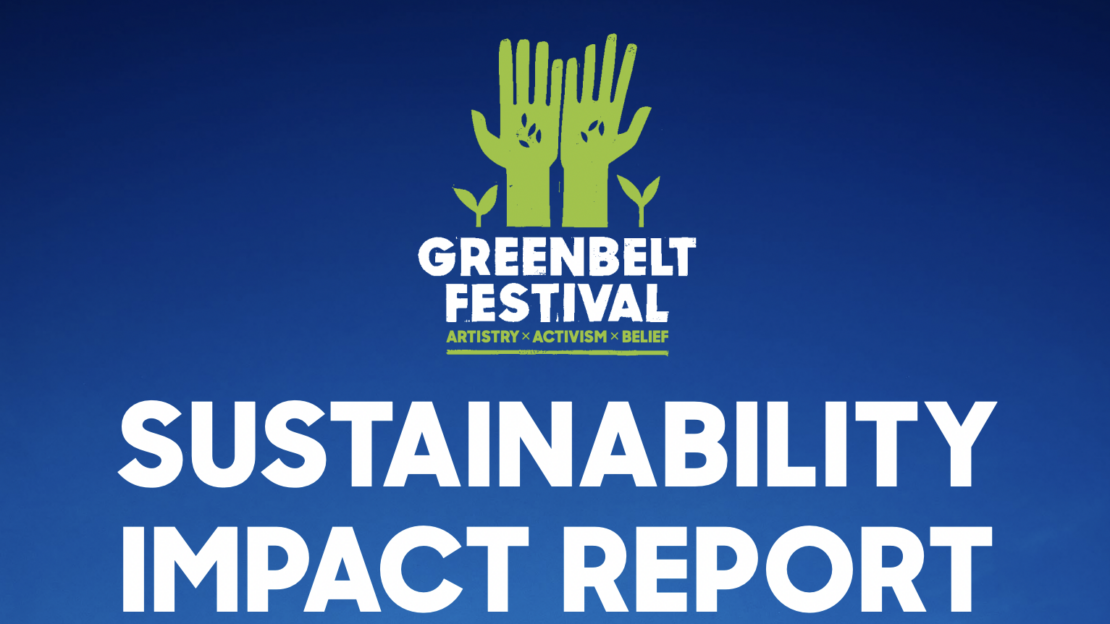Greenbelt Festival has just released its 2022 Sustainability Impact Report proving it is possible for a festival to cut its carbon footprint, year-on-year, and create a festival that is actively striving to be as sustainable as possible.
Findings from Greenbelt’s Sustainability Impact Report include:
- ZERO tents left anywhere at Greenbelt Festival 2022
- Overall carbon footprint was down by 24 per cent compared to its 2019 festival. This was mostly due to a large reduction in artists travelling by air.
- 53 per cent of audience travel was offset using ecolibrium – that’s 105 tonnes and the equivalent to 37,728 miles.
- Each person had a carbon footprint of 0.8kg (excluding travel) per day at its 2022 festival (the UK average per person, per day is 32kg).
- Greenbelt Festival introduced its policy on using recyclable cups and the banning of single-use plastic water bottles in 2019. This has resulted in more and more of its festival-goers now bringing their own reusable cup and not buying new ones.
- Greenbelt Festival was awarded the Gold Standard for Attitude is Everything, an award it has now received four times.
- It donated more than 1 tonne of goods to the local food-bank.
- Greenbelt Festival was awarded Commended by A Greener Festival.
- Greenbelt’s production buggies and its onsite taxi-buggies are now electric (with the exception of one – watch this space for 2023!).
- Nine per cent of festivalgoers used the free festival shuttle bus.
What is Greenbelt Festival doing to make improvements in 2023?
- As the site grows each year, Greenbelt’s fuel usage increases. Last year it went up by nine per cent. Greenbelt is committed to becoming more energy efficient year-on-year with the use of more solar and HVO fuels.
- Greenbelt is always looking to reduce, reuse and recycle. This year it is actively working towards composting more of its food waste; reusing and recycling more of its general waste, and reducing its travel footprint.
- Provide more compostable loos and introduce new squatting toilets.

